Managing Nest Box Competitors
Introduction
Sometimes nest boxes are used by species for which they were not intended. Wasps, mice, squirrels, and other wildlife can compete with native cavity-nesting birds for nest sites. Here are some tips for discouraging nest box usurpers.
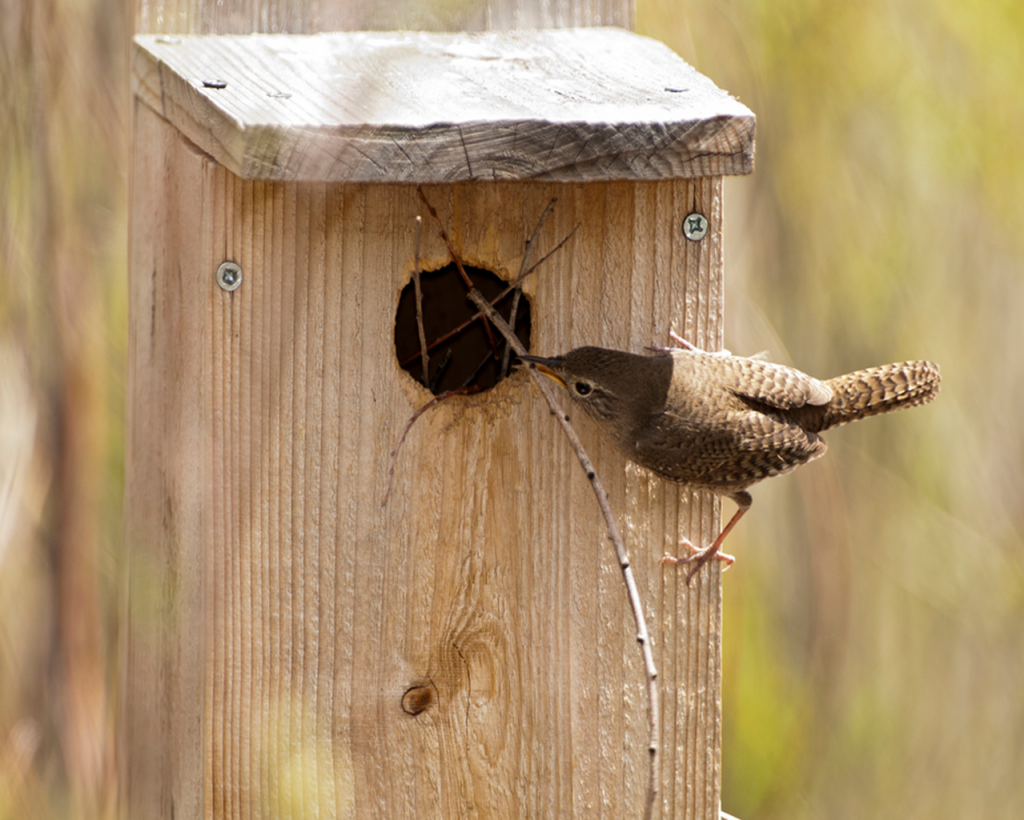
House Wren
House Wrens
House Wrens are sometimes considered problematic. These sprightly birds are very territorial and may use similar tactics as House Sparrows to evict nesting pairs from their nests. Unlike the House Sparrow and European Starling, House Wrens are protected by the Migratory Bird Treaty Act. You may not legally remove nesting material, eggs, nestlings, or adult House Wrens from a nest box. If House Wrens are not wanted, wait until after the breeding season is over to move your nest boxes away from shrubby areas, which are prime House Wren habitat. Another solution is to place a box or two in good wren habitat. This will give them a place to nest and decreases the chance that they will usurp boxes meant for other species.
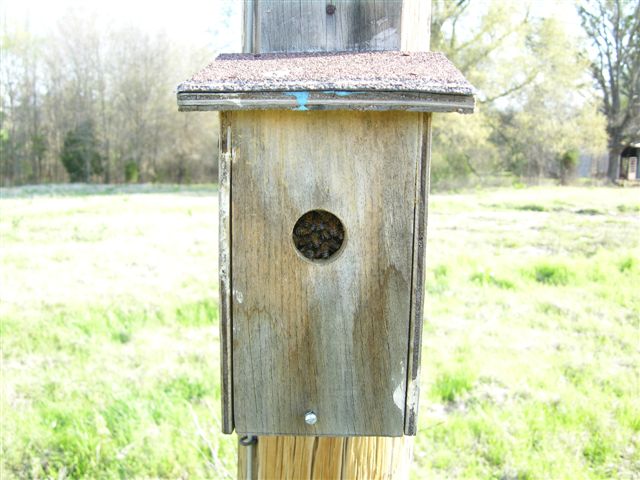
Bees in Your Box?
Bees
Bees are important pollinators of the wild foods that birds need to survive. However, they do sometimes take over nest boxes. To minimize the likelihood of bees colonizing your boxes, keep them plugged until just before the breeding season of the target species. If bees have already moved into your box, it is best to contact a professional pest management company or bee keeper to remove the insects because bees will vigorously defend their colonies. Africanized Bees, which are becoming much more common in the United States, look very similar to native bees but are much more aggressive. You should not attempt to remove a bee colony without professional help. Once they have been safely removed, clean out any combs or wax in the box with soapy water.
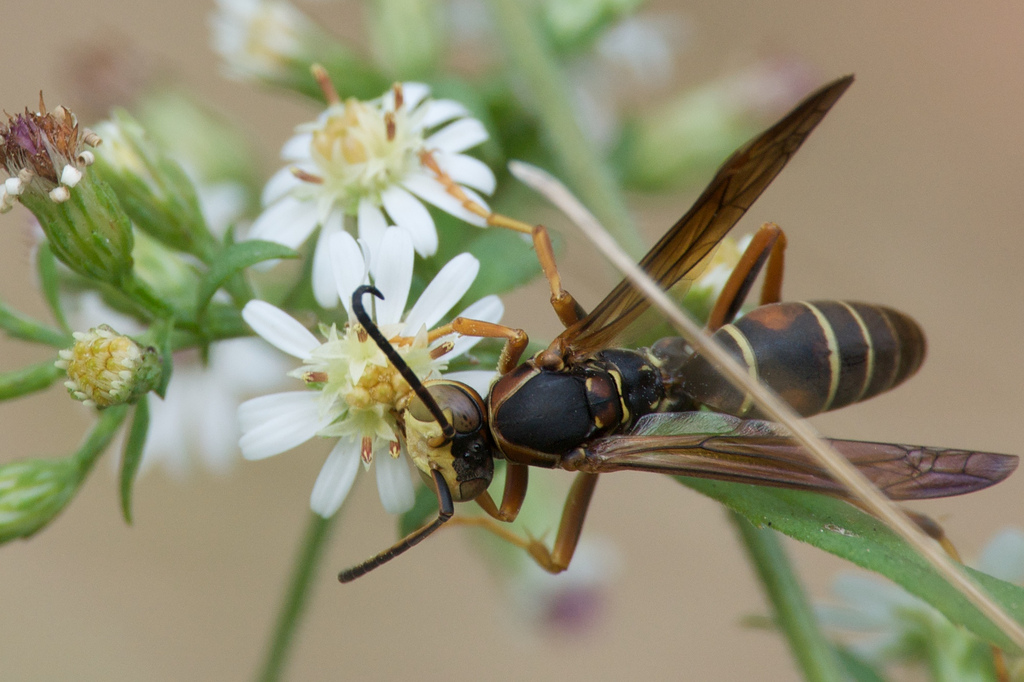
Native Paper Wasp, Polistes fuscatus
Paper wasps
Paper wasps sometimes construct hanging colonies from the interior roof of nest boxes in the early spring. The European paper wasp, introduced to North America in 1980, is quickly increasing its range in the eastern United States. The European paper wasp is black and yellow similar to the Yellow Jacket and is slightly smaller than our native brown and tan common paper wasp. The European wasp prefers to nest in cavities and it becomes aggressive with much less provocation than the native paper wasp. Unlike the common paper wasp, the European paper wasp often uses the same nest year after year, resulting in early nesting and larger nests.
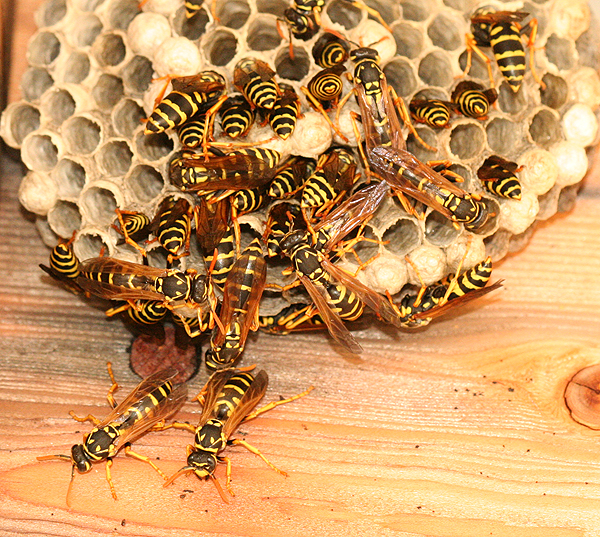
European Paper Wasp, Polistes dominula
Seldom do wasps usurp boxes from nesting birds. They are mostly found in empty boxes. If these insects are found in a box, it is best to leave them alone and not take any active measures to exterminate them. Instead, wait to evict them until the fall when the weather is cooler and their activity has halted. You can prevent wasps and bees from establishing themselves by applying a thin layer of nonstick cooking spray or bar soap onto the inside surface of the roof. This will create a slippery surface between the insects and the roof of the box. To prevent them from establishing colonies, keep nest boxes plugged until just before the breeding season of the target species begins. Do not spray any pesticides into the nest box under any circumstances. The residue may remain even after cleaning and harm future nestlings.
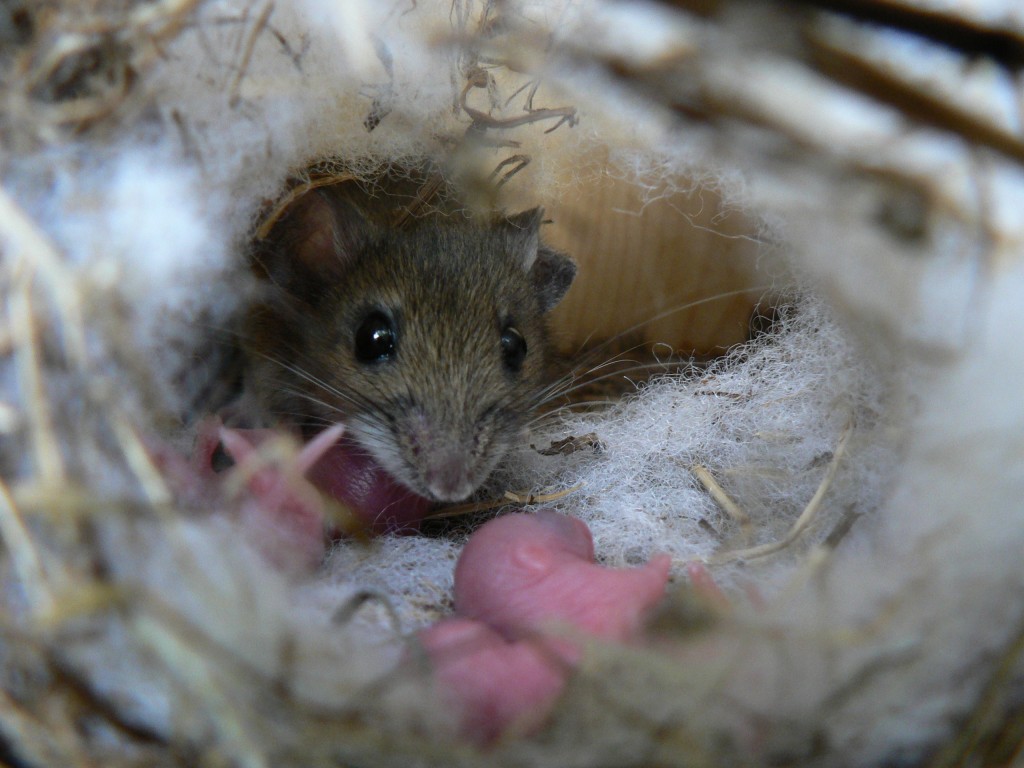
A Mouse's House
Mice
Mice usually don’t become problematic in nest boxes until they begin to build their nests for the winter. Because this happens after birds have finished breeding, most nest box monitors do not evict mice, and instead allow them to nest in their boxes throughout the winter. These boxes need to be cleaned out in early spring, however, or birds will not use them. Wear gloves and a dust mask when cleaning out old mouse nests.
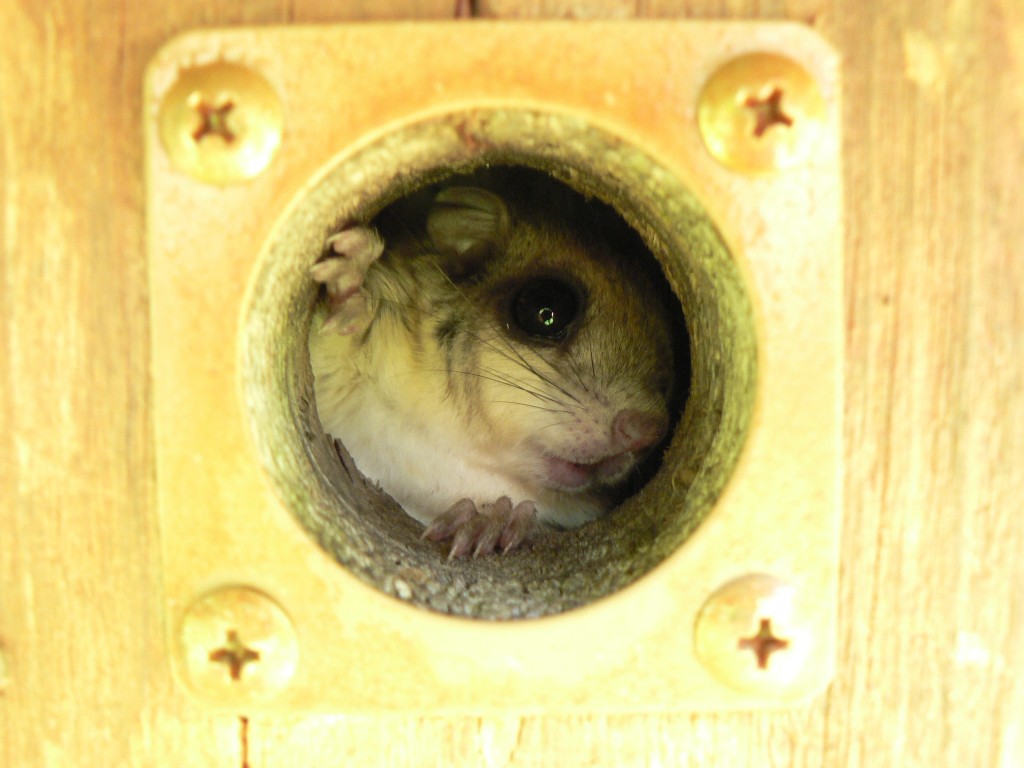
Flying Squirrel
Squirrels
Squirrels occasionally compete with birds for nest boxes, and the timing of their litters does overlap with the breeding season of nesting birds. If a squirrel nest with young is found while checking nest boxes, it is best to wait until the nesting attempt is finished to clean out the box. State laws protecting native mammals vary and typically do not allow for the removal of active nests without a permit, unless they are inside buildings. Some squirrel species will produce two litters per year (spring and fall) and may use the same box for both attempts. It takes about 60 days for a litter to become independent and stop visiting the nest. If squirrels become more than just an occasional problem, prevent them from reaching the box by installing proper predator guards and by locating the nest box away from any tall trees.
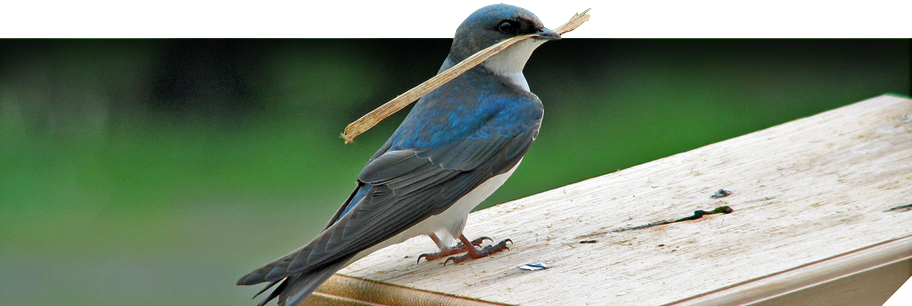 Photo ©
Photo ©